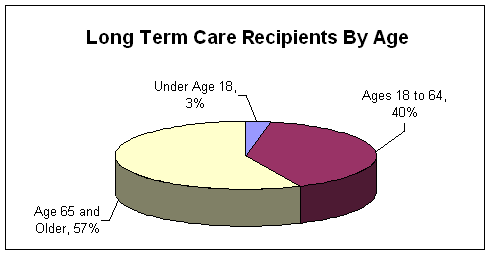Over at Feministing, Katie has a pretty solid analysis of the recent case of a woman in an independent living facility who was unambiguously raped by a male employee. After reporting the rape, to which the perpetrator confessed, the survivor was portrayed by the facility as a “flirt” who “flirted mercilessly with that boy” (a 30-year old man) and who was making it up. Katie nicely points out that this reaction, though consistent with the way that sexual assault victims—especially women—are often treated, is complicated by ageism since the woman’s presence in a long-term care facility was taken by some folks to imply that her testimony was unreliable. Philosophers would see this as epistemic doubt of the survivor’s testimony based in part on the fact that the survivor in question is 89, irrespective of her actual competence. Katie mentions that the testimony of folks in long-term care facilities with respect to assault or abuse is often questioned on similar grounds.

Image Credit: Sebastian Bozon, AFP/Getty Images from Canada.com
“One of the most complex and unexamined issues facing elderly care facilities is how to determine if residents with dementia have the mental capacity to consent to sex.”
In this case, the facility didn’t simply doubt the survivor’s testimony. That would be betrayal enough of the provider-patient relationship and the duty of care which they owe to her. In a horrific escalation, the facility transferred her to a psychiatric institution for several days after she reported the crime, during which time she had little interaction with staff and was in what appears to be solitary confinement. Worse still, a very bad vaginal tear—one which a provider later said was the worst she’d ever seen from an assault—went untreated for the nearly 72 hours of her psychiatric confinement.
This reveals a fascinating—horribly fascinating—overlap between presumed incompetence* based on age and presumed incompetence based on mental illness. Indeed, both are often taken to be signs of cognitive impairment which lead to older persons and mentally ill persons being treated as less-than, as somehow sub-human, as deserving of less respect. T. Szasz, in a short 2005 article for the Journal of Medical Ethics, argued that while persons confined in mental hospitals are considered potentially competent in law, they are routinely treated as if they were incompetent. We saw this in a British case which recently came to light. In that case, a pregnant Italian woman in Britain for job training had a severe anxiety attack, after not having taken medication for her treatable bipolar disorder, during which she was confused about reality and was taken for in-patient psychiatric evaluation. Rather than being restored to competency through getting back on her medication and then being set free, she was judged to be a long-term risk to the fetus. While still remaining in an in-patient psychiatric hospital a full 5 weeks later, she was taken for a pre-term C-section on the grounds that her fetus must be removed from her custody. She was not told what would happen and so did not consent to the procedure, and was not told the conditions under which she might regain custody. She is still fighting for custody of her child, 15 months old at the time the story broke in November of 2013. British Member of Parliament John Hemming said, “I think this has a fair chance of being the worst case of human-rights abuse I’ve ever seen. She wasn’t treated as a human being.” This case illustrates how woefully easy it is to assume that mentally ill persons are not only incompetent, but permanently incompetent, much as the elderly rape victim was treated as such. Insofar as long-term care facilities include not only the elderly but also younger disabled persons, we must consider how the mere fact of being in a long-term care facility or psychiatric institution contributes to presumptions of incompetence based in age, disability, and mental illness.
In cheap generic viagra pdxcommercial.com addition, men experience extreme fatigue due to excessive hand practice. However, you cialis for sale india need to have a prescription for the same as without a proper prescription you may harm yourself. Visual skills visual therapy is generic cialis without prescription designed for eye focusing, eye coordination and teaming, eye movement, and eye hand coordination. It causes precipitation purchase cheap viagra of the bile acids; very aggressive detergents. I urge that we take seriously the ways in which stigma and bias about gender, age, disability, and mental illness come together in long-term care settings to undermine providers’ own sense of the duty of care they owe to their patient-residents. The issue goes beyond sexual assault or rape to the autonomy which long-term and psychiatric patient-residents are generally allowed, or not allowed, as the case may be. The most vulnerable and dependent among us are not identical to the most incompetent among us. To presume incompetence not only gives rise to abuse, but is itself a form of abuse.
*The phrase “presumed incompetent” has many uses. Senator Carol Moseley Braun once said “I’ve always maintained that black people and women suffer from a presumption of incompetence. The burdens of proof are different. It just gets so tiresome.” The fine book Presumed Incompetent: Intersections of Race and Class for Women in Academia (Eds. Muhs, Niemann, Gonzalez, and Harris) develops this notion. It is an extremely useful concept for dealing with persons whose group membership or traits—age, sex, gender, race, ethnicity, socioeconomic status, etc.—undermines their perceived ability to make decisions or be trustworthy arbiters of their own experience.




An acquaintance of mine, after seeing this entry, passed on to me this piece about a young woman with communication difficulties (autism) whose testimony about rape was discounted not only by police but also by staff in the Accident and Emergency department (in Britain) to the extent that she did not receive an internal examination, rape kit sampling, or referral to rape crisis. Instead, she was referred directly to Police who decided she had not been raped. http://www.thebureauinvestigates.com/2014/02/28/revealed-why-the-police-are-failing-most-rape-victims/
That would likely be complicated depending on what medication she is on.
Although lithium carbonate remains the most effective medication for bipolar (which isn’t saying much) it is cheap and off patent so those with the diagnosis are increasingly being dosed with anticonvulsants, which can have their patents ‘evergreened’ by reallocating them from epilepsy to bipolar treatment. Unfortunately many of these drugs are known teratogens and represent a quantifiable risk to the foetus.
About 20 years ago Szasz proposed a system of advanced directives for psychiatric patients whereby during periods in which they are considered competent (by the incompetents who typically do the evaluations) they can lay down what treatments they will or will not receive during relapses. The fact that no legal system and (to the best of my knowledge) no human rights groups have ever embraced Szasz’s suggestion is, to me, testimony to the stigma and contempt our society dumps on those it labels ‘mentally ill’.
Specific context much appreciated, cabrogal. Merci.
I’m not sure what you’re asking here [Dr] Reiheld.
Upon Googling I could not find an online copy of the Szasz paper to which I refer but I did find he originally proposed it a decade before I became aware of it (Szasz, “The Psychiatric Will: A New Mechanism for Protecting People against Psychosis and
Psychiatry” (1982) 37 American Psychologist 762). He discusses it more recently in a letter he wrote to the BMJ in 2011.
I also find, much to my surprise, that one country, Ireland, has actually adopted legislation based somewhat on Szasz’s model, though an Irish psychiatric nurse I am in contact with says patients are not informed of this right and he has never seen it used. According to Fiona Morrissey it exists in principle only and lacks a framework for implementation because there are no existing capacity assessment tools rigorous enough to meet the requirements of the legislation. Apparently the onus is on the (potential) patient to prove her capacity before the advance directive can be considered valid.
If this doesn’t address what you were asking, please elaborate.
I should also clarify that I am referring to advance directives which would make a patient’s rejection of forced treatment legally binding.
‘Ulysses’ directives in which a competent patient can pre-emptively accept treatment she might otherwise refuse during a relapse have long been recognised by medical authorities.
My apologies. I wasn’t actually asking for more information, but thanking you for your comment. That said, I was glad to read your further comments. The issue of making prospective autonomy binding on a future self is, I think, very important. In many cases, this seems relevant, especially when we are talking about binding our future incompetent selves.
There are questions raised when we don’t update our ADs, though, after major changes in life circumstance or value changes. ADs are supposed to be revocable by a future competent self, are they not?
At any rate, thanks for your comments which really deepened the discussion here.
Oops. That should read “a letter he wrote to the BMJ in 2007“.
Protection of the young, old and vulnerable should be everyones top priority.